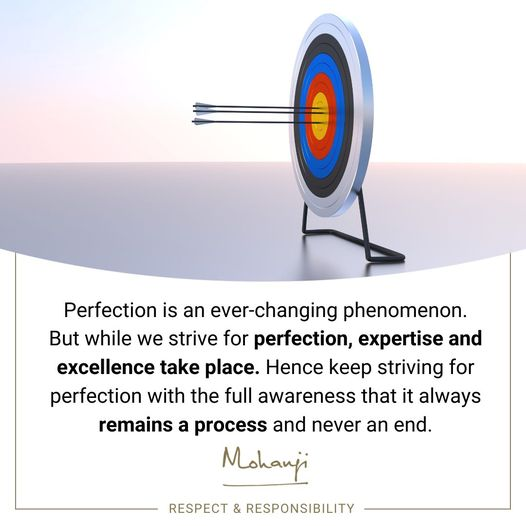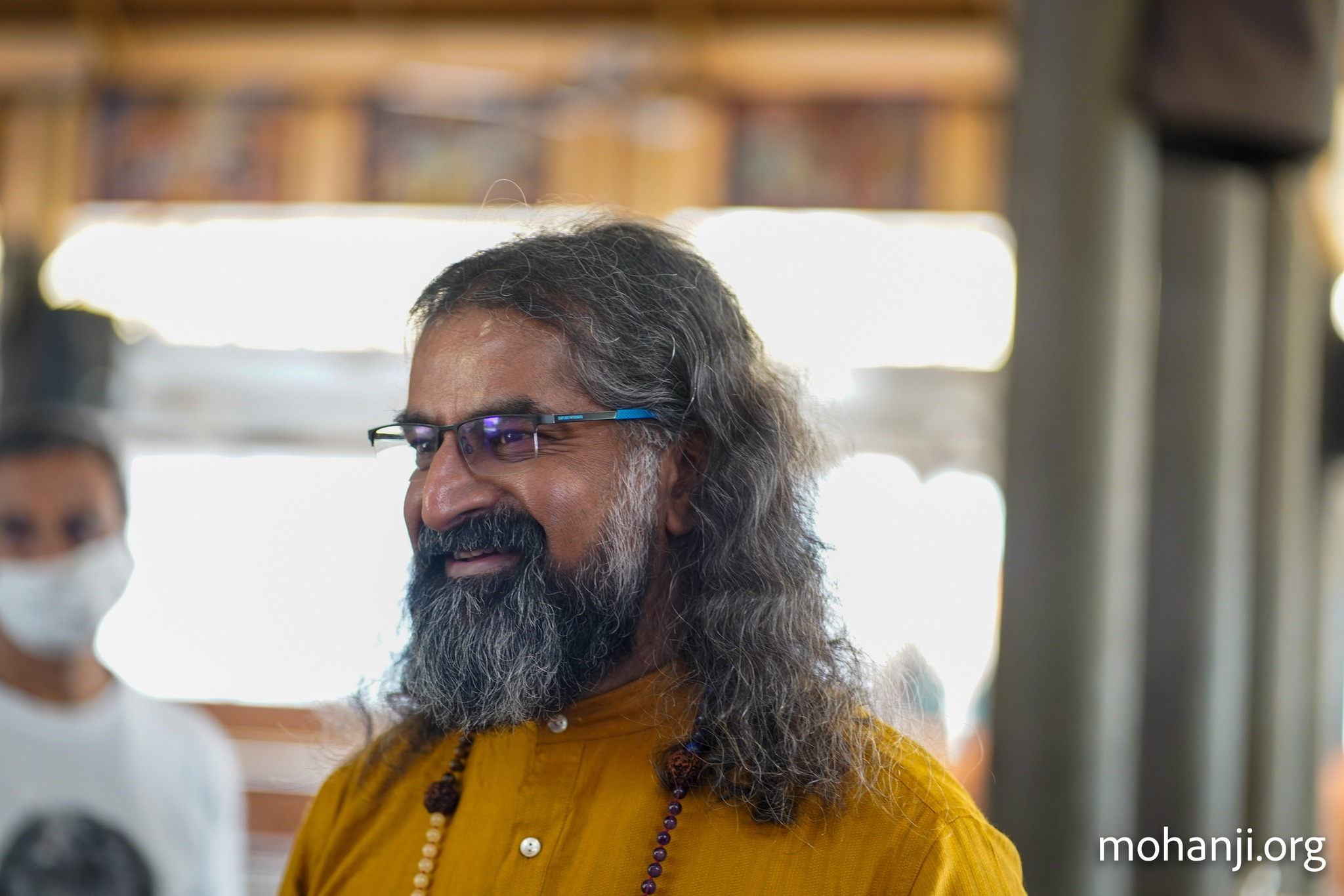By Christopher Greenwood
Day 105 Lesson – Meditate and pre-plan
Yesterday I was thinking back to some of the lessons, tips, and guidance that Mohanji shared since living with him about the more practical aspects of this role and life in general. I don’t think I could have asked for a better guide or mentor when it comes to leadership, management, organisation, and planning. He’s handled so much in his career and is also handling so much now. As my background is from the world of business, I’ve always found it useful to look up to someone as a mentor to learn and grow from, and Mohanji is definitely one of the best that I’ve had.
For me, it helps a lot to hear his experiences and how I can apply them to the work I’m doing. Today, I wanted to share a story from Mohanji’s work life, which is a great example of the advice he often gives to team leaders. It’s about pre-planning and meditating on what you need to accomplish before moving into any action. That’s important because only when we’re clear, it is possible to guide others.
As the summit has come to a close, this is a really good example of how pre-planning, thinking ahead and meditating on what needs to be done can help. Maybe it helps all the teams involved.
This was from a time when Mohanji was handling five countries for a shipping company. This means many different types of ships would come to use the port; cargo ships, cruise ships, huge oil tankers, etc.; it’s incredibly dynamic. The prices fluctuate for oil every hour, the weather, the tides, everything’s changing. It is important that everything is timed and planned correctly for quick unloading and loading, so there are no delays; otherwise, they could be waiting longer than necessary. And for them, that’s losing money and time.
Mohanji had a reputation for getting things done. He was so good that people used to pay him more because they knew they didn’t have to worry if it was with him. That was his reputation and the respect he built. I think the head of Toyota spoke about Mohanji. He said, “If we give business to Mr Mohan, we can sleep peacefully; it will be done.” Like that, he worked error-free. People would tell him, “It’s impossible”, and then he would ask, “Who said so?” And then he would prove that it wasn’t.
This attitude was how he got an award from the Japanese Navy. And they had never given an award to anybody before. But by following the protocols and through good pre-planning, Mohanji was awarded this. Even his head office was shocked; they asked how. He just simply said – “pre-planning”.
He had never handled a Navy vessel before. This was the Japanese Navy, and they are very protocol-oriented, as I learned from Mohanji. When Mohanji found out that the ship was coming, he took a copy of all the procedures of what needed to be done, and he meditated on it for some time. He didn’t discuss this with any of his staff, even though some of them had handled Navy ships before. He wanted to be clear on what needed to happen. Otherwise, he can’t tell the team what to do. So, he studied it and understood that timing was crucial.
For example, if something has to happen at 7 am, 8 am, or 9 am, that’s how the Japanese operate, a clear protocol. So, he did that for all those activities that happened at a certain time; he made sure that everything was equal. If something had to happen by 7 am, it was done by 6:30. If it needed to happen by 8 am, it would be done at 7:30. Like that, there should be a clear completion before the requirement has to happen.
The same went with the protocol for receiving the dignitaries of the ship. Obviously, there’s a hierarchy in the Navy, so he made sure that his team matched that. If the admiral were coming off the ship, then Mohanji would be there himself because he’s head of the country. Like that, if the undersecretary were coming, then his operations manager, the next in line to him, would go. The protocol was aligned to everything which they needed.
They were so happy with this, and that’s why they gave him the award. They said they’d been to various ports, but they’d never seen such clinical precision. He was awarded in recognition for that. He achieved that simply by studying beforehand, pre-planning and meditating on what needed to be done.
I think that’s a good lesson, which I look to incorporate anytime I’m taking a serious task.
Day 106 Lesson – Facing life
Today I’ll share another story from Mohanji’s time working in the shipping industry. I like this one because it highlights many lessons and qualities Mohanji has. Like all good stories, people will take the messages that resonate with them the most. To help that happen, I will reserve sharing the lessons which I’ve picked up from this story and leave it for you to find your own.
This story was from around 2002 when Mohanji was working as the country head for a shipping company. A ferry service was introduced, and it was looking to be an alternative to the airlines. At that time, Emirates was just starting, and there were only a few expensive airlines. Also, you could only take limited luggage.
So, a group of people had leased a ferry ship, and probably about 25% of the vessel was closed rooms, and the rest was deck and storage space. That way, many people would have to sit on the deck. That would probably be okay for three or four hours, but this journey was across the Arabian Sea. It was planned to take three or four days, depending on the weather.
They hired the company which Mohanji worked for. The ship would come from Bahrain to Oman, people would load all the things onto the ship, and then it would sail across the Arabian Sea to India. But when it crosses, the ship cannot go straight; it has to zigzag because the waves and the currents can make the ship drift. That adds on maybe half a day or another day. Depending on the weather, the planned three-day trip could even take five days.
All these people would be sitting on the deck; with the wind, the salt, the water vapour, and the sun, they’d be barbecued. Plus, probably some vomiting and seasickness. So, not a good experience.
This ship had announced the line in the newspapers. People were super excited. They said that the amount of luggage you can take is not 25 kilos, but 750 kilos per person, because they could put everything on the ship. People brought all the things, all the garbage, plastic bottles, glass bottles, gas canisters, oils, anything they could take.
Many people had booked, and the agent who would come to the port where Mohanji was, was very excited because they’d planned for maybe 600 or 800 people capacity, and they had bookings for more than 18,000 – 20,000. So, they were going to plan future sailings. Mohanji looked at this; he had thought about it, looked at what was going to happen and said, “I’m not sailing the ship.” The agent said, “What do you mean? How can you say that?” Mohanji just calmly said, “How many people can stay indoors?” The agent said, “50, maybe 60.” Mohanji replied, “Okay, good. If you can arrange so that it’s 60 people taking the ship, we’ll sail it because then that would meet the safety standards.”
This became a huge issue; it was in the newspapers, it was on the TV. They said the airline industry had bribed him to make sure that this didn’t go so that they could benefit. It completely exploded, but throughout all of it, Mohanji was cool. Even his office was afraid; they thought he had gone crazy to take on all this – news, press, ministers, government, and police. But he just kept with what he knew was right and said the ship wasn’t sailing.
The minister even called from Oman and said, “What’s wrong with the ship? This is a new service, and it should be okay.” Mohanji said the ship is not fit to go because of safety and security reasons. He said that if the same was done with a cruise ship, he would agree because everybody has an indoor place, and safety is met. But here, there’s going to be many deaths and ailments on the way.
Also, they say it’s three days across the sea, but it won’t reach in three days if you look at the weather and consider all the currents. It’s at least another day. Mohanji asked if they had food for all these people. And if they don’t, or if they run out, how will they deliver it, by helicopter? Because once they’ve left the shore, you can’t do anything. Whatever they have in store won’t be sufficient for 600-800 people. And most people will be sat on the deck, women and children as well. He repeated that he was not sailing the ship as it didn’t meet the standards.
The complaint then went to the police chief, the ministries and everywhere else to say Mohanji was blocking it. His boss called to find out what was happening and said, “It looks like you’re having some fun there. Do you need any help?” Mohanji said, “No, I’m okay. If anyone calls, just say I’m handling it, I’ll take care.” He took full responsibility. Even the ship owner came, a rich Arab guy, and said, “I’ll buy you.” Mohanji turned around and said, “Well, you may be able to buy other people, but you won’t buy me; you can’t do anything to me.” Like that, he stood firmly.
At that time, there was no internet. People were calling him up on the phone to share lots of colourful wishes to him, lots of abuse, saying he’d been bribed, “who gave you the money”, “who are you working for.” You can imagine all these calls coming in like that.
One evening, he was sitting at home, and he turned on the TV and saw a picture of himself. They were saying that he was suspected of being bribed by the airline industry. It was around 9:30 at night, and he immediately called a press conference. He explained the whole situation; he didn’t take permission; he just did what needed to be done. He said, “This doesn’t meet the safety standards. Do you know how much money these people are making, but there’s no safety for any of the people going, and there’s no guarantee that people will reach alive.” He gave the whole story and blasted them for the situation that they caused.
The next day, it came out on the front page. In the end, I think they tried to negotiate something else; they reduced the passenger count, they also sailed from a different location, Bahrain instead of Oman, I think it was. But six people died on the way, even though there were 50 people in the rooms and very few people on deck. You can imagine if there was 600 people, it would have been a full disaster.
Also, this company had approached many of the shipping agencies who also refused to sail their ship. But they only refused because of Mohanji and what he had spoken. They saw what was going on. They probably wouldn’t have even thought about it in that level of detail. Mohanji standing up to his responsibility and telling the truth had a big value.
But all he was really doing was just thinking logically; three days across the sea, all the people would be out on deck. Even if you took a boat to the sea for three or four hours, it’s hard to handle. Four or five days, with women and children, it wasn’t sensible. He doesn’t like to block other people’s business. But when the blame was put on him, he had to act.
That’s how he has faced most of his life as well, fully head-on. In fact, in some ways, he enjoys a fight, and he will fight to the end; as we’ve experienced here on the badminton court, he never gives in. He loves that. But he also says that, unfortunately, many people choose to fight in the shadows these days, especially in Mohanji’s life and experience. Rarely will they come to him and say, “Hey, I’ve got this problem or this situation. Let’s talk.” It’s always via somebody else or in the shadows.
I hope you enjoyed that story. And I also hope you have a great day ahead.
|| JAI BRAHMARISHI MOHANJI ||
Edited & Published by – Testimonials Team, 27th February 2022
Disclaimer:
The views, opinions, and positions expressed by the authors and those providing comments on these blogs are theirs alone and do not necessarily reflect the views, opinions or positions of Mohanji, Mohanji Foundation, it’s members, employees or any other individual or entity associated with Mohanji or Mohanji Foundation. We make no representations as to accuracy, completeness, timeliness, suitability or validity of any information presented by individual authors and/or commenters on our blogs and will not be liable for any errors, omissions, or delays in this information or any losses, injuries or damages arising from its display or use.
We reserve the right to delete, edit, or alter in any manner we see fit blog entries or comments that we, in our sole discretion, deem to be obscene, offensive, defamatory, threatening, in violation of trademark, copyright or other laws, of an express commercial nature, or otherwise unacceptable.
Mohanji Testimonials team







